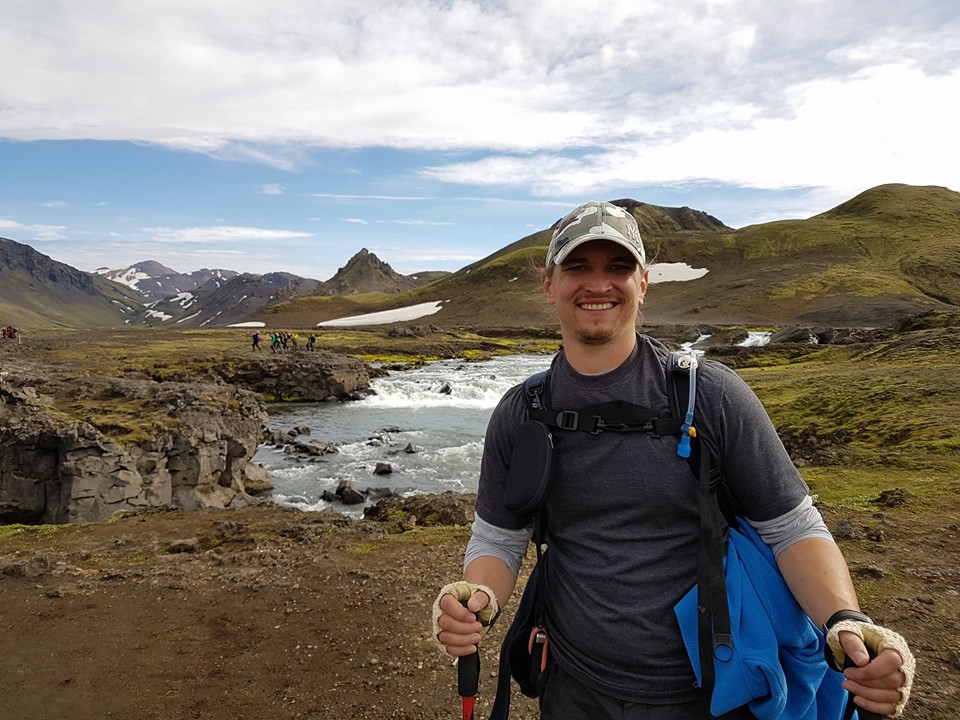Mark’s mum writes
I felt blessed to have three sons born healthy. My middle son, Mark, and youngest, Russell, were always bumping into things as kids but I put it down to childhood clumsiness. I was always telling them off for sitting too close to the TV.
They were both diagnosed as short-sighted after a teacher noticed they were straining to see the blackboard and it was when I took them for a routine optician’s appointment to get spare glasses that we were told something wasn’t right. The optician said they both had pigmentation on their retinas – like freckles of dust – that was obscuring their vision.
After a load of tests it was confirmed they had x linked retinitis pigmentosa, a type of RP, an inherited condition that causes progressive vision loss. I had no symptoms but I discovered I was a carrier. I was shocked, I’d never heard of it and wasn’t aware of any history of it in the family. In some families RP may have been present for several generations but in others there may be no family members known to be affected. Thankfully, their older brother Darren doesn’t have it.Russell was six and Mark aged eight when we were told they would slowly go blind. It was heart breaking as their peripheral vision worsened and the blind spots merged to give them both tunnel vision. Russell in particular is sports mad and would have loved to play football with his friends but his limited sight made it impossible.
As teenagers, their condition curbed their social lives. They rarely went out at night to join their friends for a drink. Driving a car is usually a big deal for lads but they couldn’t enjoy that and have that independence.
I’m so proud of how they’ve both coped with it. The pair of them work – Russell is employed at a local benefits agency and Mark worked in pharmaceuticals for 15 years, until he was recently made redundant, and he now wants to work for a charity helping blind people. Mark tirelessly fundraises for RP Fighting Blindness and has raised around £10,000 by running the London Marathon, trekking the Sahara desert and taking part in a skydive to name just a few. He goes to all the research conferences – he’s desperate for a concrete treatment to be found.
Mark is married and spent ages doing up his new house but it’s a very frustrating condition – he gets irritated when he puts something down like a hammer and can’t find it. Russell is engaged. They both have fantastic partners but it makes me sad to think that they are slowly going to lose their sight and independence.

